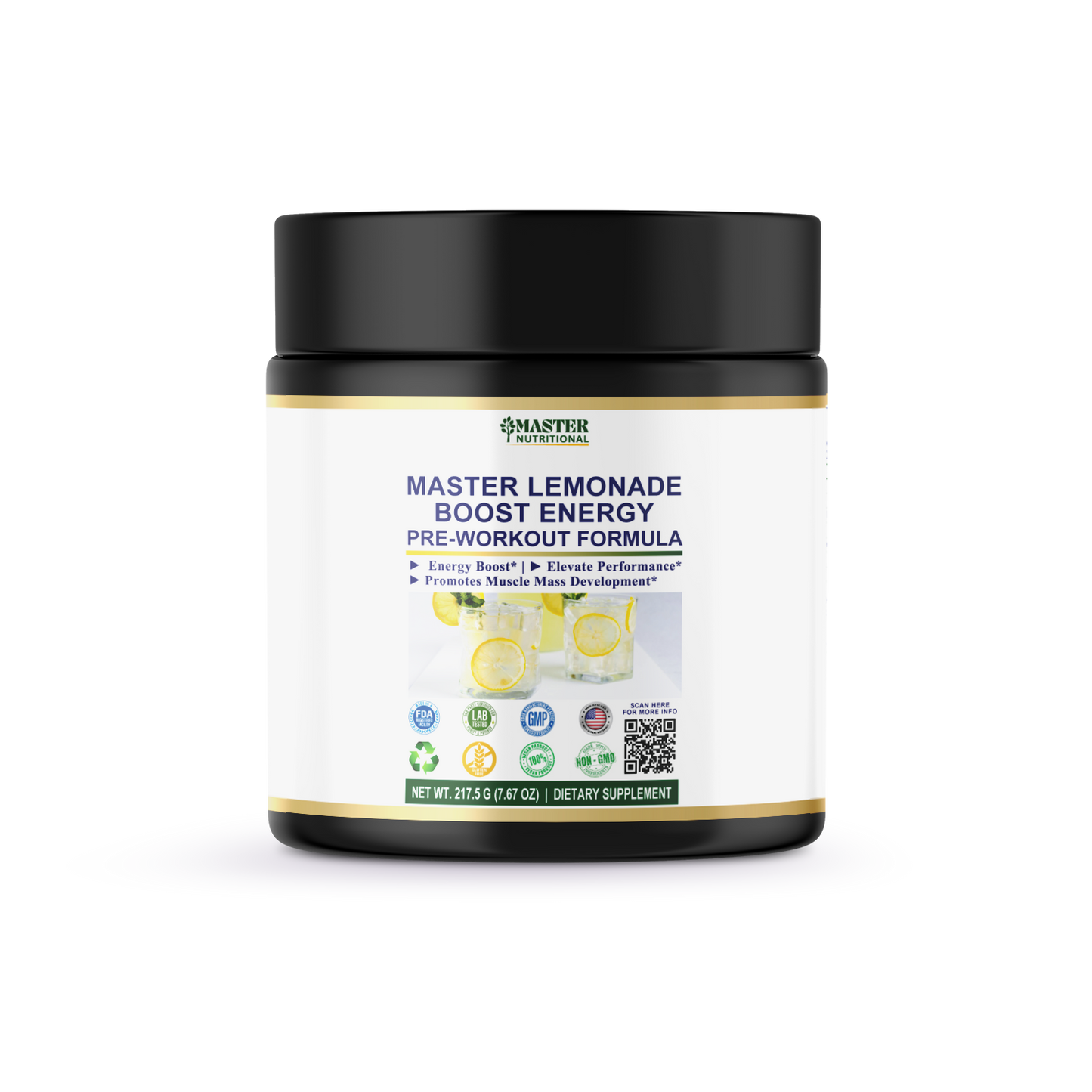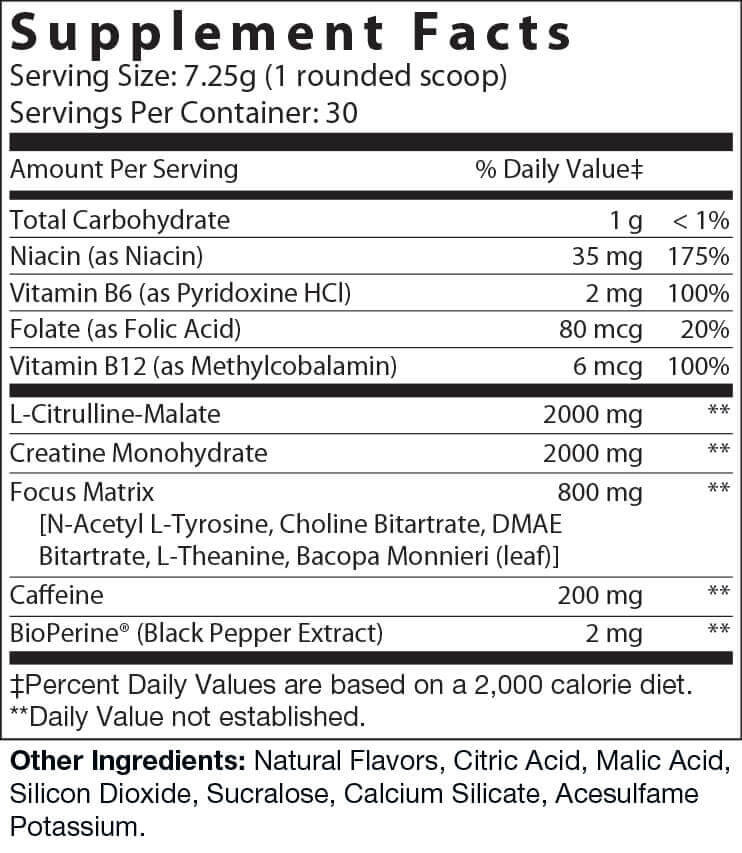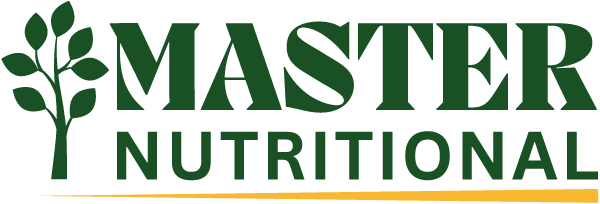Premium Sports Nutrition
Master Lemonade Boost Energy Pre-workout Formula: Power Up Your Energy Levels and Muscle Support
Master Lemonade Boost Energy Pre-workout Formula: Power Up Your Energy Levels and Muscle Support
Enjoy 5% Discount Code: MDAY24, valid till August 31, 2025
Couldn't load pickup availability
Are you tired of hitting a plateau in your workouts? Struggling to overcome fatigue and elevate your workout routine to new heights? Get our natural energy-boosting supplements from Master Nutritional! Master Lemonade Boost Energy Pre-Workout Formula is here to address those concerns and enrich your performance and fitness journey.
How to Use?
Mix a single rounded scoop of Master Lemonade Boost Energy Pre-Workout Formula with a bit of cold water and ingest 30-45 minutes before commencing your physical activity.

Key Features
✓ Crafted with care in the United States, our formula is a testament to American quality and excellence.✓ Master Lemonade Boost Energy Pre-Workout Formula is manufactured in facilities registered with the FDA, adhering to the highest regulatory standards.
✓ GMP Certified
✓ Third-Party Laboratory Tested
✓ Gluten-Free
✓ Non-GMO
✓ Vegan-Friendly
✓ Lactose-Free
Vital Ingredients for Peak Performance
- Vitamin B6 (Pyridoxal 5'-Phosphate)
- Caffeine Anhydrous
- Niacin (Vitamin B3)
- Vitamin B-12 (Methylcobalamin)
- L-Citrulline Malate
- Bioperine
- L-Theanine
- Choline Bitrate
- Folate (Folic Acid)
- Creatine Monohydrate
- Bacopa Monnieri
- DMAE Bitrate
- N-acetyl tyrosine (NAC)
Why Choose Master Lemonade Boost Energy Pre-Workout Formula?
Our pre-workout formula is not just a mix of ingredients; it's a scientifically crafted blend aimed at optimizing your exercise performance. We prioritize the use of high-quality ingredients, ensuring optimal ratios of branch-chain amino acids to deliver world-class results.
What are the Benefits?
☞ Energy Enhancement☞ Optimized Pump
☞ Scientifically Formulated
☞ Supports Cardiovascular Health
☞ Help to Muscle Boost Naturally
☞ Cognitive Support
Overview
Choose Master Lemonade Boost Energy Pre-Workout Formula not just for its performance-enhancing benefits but also for the quality and transparency that our key features represent. Enhance your exercise routine with assurance and tranquility.
Sources
- Guest, N. S., VanDusseldorp, T. A., Nelson, M. T., Grgic, J., Schoenfeld, B. J., Jenkins, N., Arent, S. M., Antonio, J., Stout, J. R., Trexler, E. T., Smith-Ryan, A. E., Goldstein, E. R., Kalman, D. S., & Campbell, B. I. (2021). International society of sports nutrition position stand: caffeine and exercise performance. Journal of the International Society of Sports Nutrition, 18(1), 1. https://doi.org/10.1186/s12970-020-00383-4
- Barkhidarian, B., Khorshidi, M., Shab-Bidar, S., & Hashemi, B. (2019). Effects of L-citrulline supplementation on blood pressure: A systematic review and meta-analysis. Avicenna journal of phytomedicine, 9(1), 10–20.
- Figueroa, A., Wong, A., Jaime, S. J., & Gonzales, J. U. (2017). Influence of L-citrulline and watermelon supplementation on vascular function and exercise performance. Current opinion in clinical nutrition and metabolic care, 20(1), 92–98. https://doi.org/10.1097/MCO.0000000000000340
- Bahri, S., Zerrouk, N., Aussel, C., Moinard, C., Crenn, P., Curis, E., Chaumeil, J. C., Cynober, L., & Sfar, S. (2013). Citrulline: from metabolism to therapeutic use. Nutrition (Burbank, Los Angeles County, Calif.), 29(3), 479–484. https://doi.org/10.1016/j.nut.2012.07.002
- Ueland, P. M., McCann, A., Midttun, Ø., & Ulvik, A. (2017). Inflammation, vitamin B6 and related pathways. Molecular aspects of medicine, 53, 10–27. https://doi.org/10.1016/j.mam.2016.08.001
- Bird R. P. (2018). The Emerging Role of Vitamin B6 in Inflammation and Carcinogenesis. Advances in food and nutrition research, 83, 151–194. https://doi.org/10.1016/bs.afnr.2017.11.004
- Mascolo, E., & Vernì, F. (2020). Vitamin B6 and Diabetes: Relationship and Molecular Mechanisms. International journal of molecular sciences, 21(10), 3669. https://doi.org/10.3390/ijms21103669
- Kreider, R. B., Kalman, D. S., Antonio, J., Ziegenfuss, T. N., Wildman, R., Collins, R., … Lopez, H. L. (2017). International Society of Sports Nutrition position stand: safety and efficacy of creatine supplementation in exercise, sport, and medicine. Journal of the International Society of Sports Nutrition, 14, 18. doi:10.1186/s12970-017-0173-z
- Di Biase, S., Ma, X., Wang, X., Yu, J., Wang, Y. C., Smith, D. J., Zhou, Y., Li, Z., Kim, Y. J., Clarke, N., To, A., & Yang, L. (2019). Creatine uptake regulates CD8 T cell antitumor immunity. The Journal of experimental medicine, 216(12), 2869–2882. https://doi.org/10.1084/jem.20182044
- Kazak, L., & Cohen, P. (2020). Creatine metabolism: energy homeostasis, immunity and cancer biology. Nature reviews. Endocrinology, 16(8), 421–436. https://doi.org/10.1038/s41574-020-0365-5
- Ebrahimi, K., Jourkesh, M., Sadigh-Eteghad, S., Stannard, S. R., Earnest, C. P., Ramsbottom, R., Antonio, J., & Navin, K. H. (2020). Effects of Physical Activity on Brain Energy Biomarkers in Alzheimer's Diseases. Diseases (Basel, Switzerland), 8(2), 18. https://doi.org/10.3390/diseases8020018
- van de Lagemaat, E. E., de Groot, L., & van den Heuvel, E. (2019). Vitamin B12in Relation to Oxidative Stress: A Systematic Review. Nutrients, 11(2), 482. https://doi.org/10.3390/nu11020482
- Romain, M., Sviri, S., Linton, D. M., Stav, I., & van Heerden, P. V. (2016). The role of Vitamin B12 in the critically ill--a review. Anaesthesia and intensive care, 44(4), 447–452. https://doi.org/10.1177/0310057X1604400410
- Shipton, M. J., & Thachil, J. (2015). Vitamin B12 deficiency - A 21st century perspective. Clinical medicine (London, England), 15(2), 145–150. https://doi.org/10.7861/clinmedicine.15-2-145
Share





